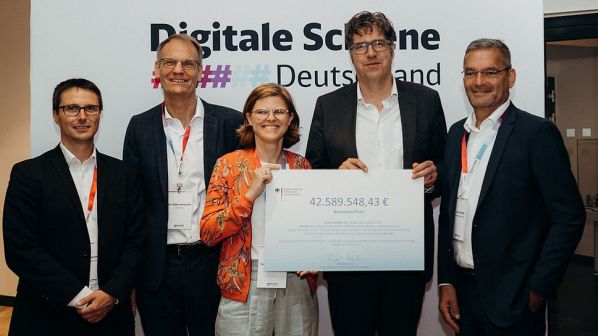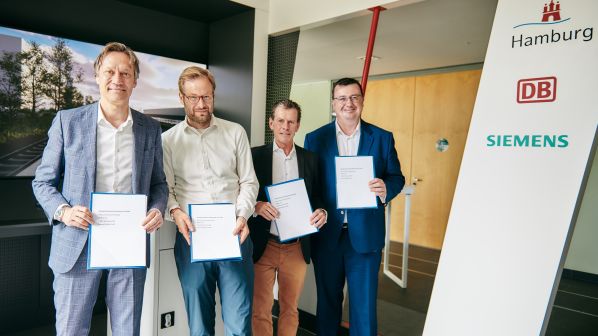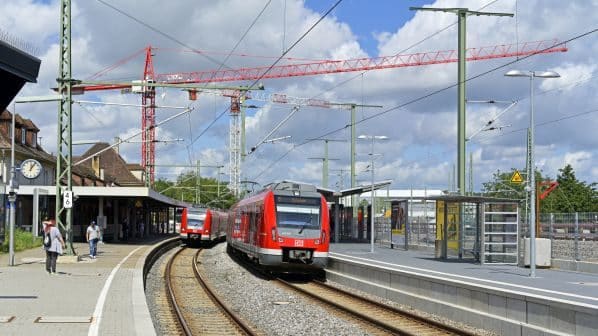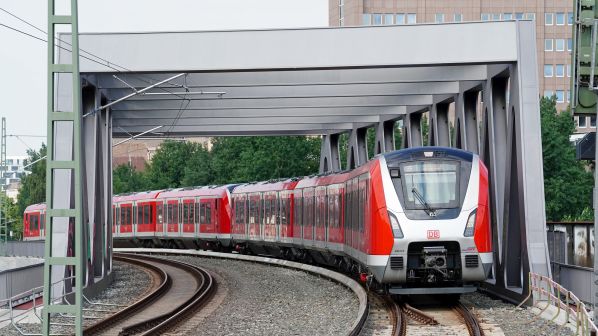GERMAN Rail (DB), the City of Hamburg, and Siemens Mobility have signed a cooperation agreement for the Digital S-Bahn Hamburg project under which the partners will test an intelligent operations control system, which aims to reduce trains’ power consumption by up to 30%.
The three partners will together contribute €35m to fund the Digital S-Bahn Hamburg 2.0 project, with testing set to take place up until the International Association of Public Transport’s (UITP) Global Public Transport Summit is held in Hamburg in 2025.
Digital S-Bahn Hamburg 2.0 project is described by Siemens Mobility CEO, Mr Michael Peter, as the next step in the project to deliver automated operation on the Hamburg S-Bahn. The operation system’s technology can identify the exact position of all trains on the network, meaning that rolling phases can be better utilised avoiding the need for trains to stop between stations. Furthermore, the system reduces peak loads in power consumption by preventing multiple trains from starting operation simultaneously. The project will also include a study to investigate the potential of energy recuperation through inverters into the public power grid.
“In addition to providing additional capacity and higher reliability, the technology has the potential to reduce energy consumption by up to 30%, according to initial estimates,” says Dr Kristian Weiland, DB head of development for Digital Rail Germany. “Considering the current energy demand of the S-Bahn Hamburg, we would save the energy consumption of 10,000 households per year in the Hanseatic city alone. Here at the S-Bahn Hamburg, we are developing the technology that will later be used nationwide.”
Hamburg S-Bahn introduced the first S-Bahn train to operate autonomously by using ATO over ETCS Level 2 at Grade of Automation Level 2 (GoA2) on the 23km section from Berliner Tor to Aumühle in October 2021. Four class 474 EMUs have continued to operate on the section, which continues to Bergedorf. Critically, the project is also the world’s first to use 5G telecommunications to support automated mainline rail operation.
Hamburg ordered 64 three-car class 490 S-Bahn trains that will be equipped with ETCS Baseline 3 Release 2 and ATO at GoA 2 from Alstom in September 2021. They will be delivered in 2025-26 and will support the ambition to deliver a fully automated S-Bahn network within the city by 2030.
“As the S-Bahn in Hamburg shows, innovative technologies and intelligent systems can contribute to creating sustainable and efficient solutions,” says Dr Anjes Tjarks, Hamburg’s senator for transport and mobility transition.
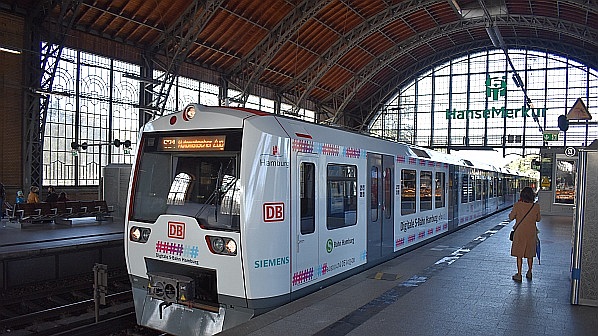
Meanwhile, the German government’s Federal Ministry of Economics and Climate Protection has allocated €42.6m to support the Automated Train project to equip two regional trains with intelligent sensors able to support automated operation.
DB is working with Siemens Mobility, Bosch and seven other partners on the project. The plan is to equip a Siemens Mireo Smart train and a Stuttgart S-Bahn train with the intelligent sensor technology and conduct trials by 2026.
During the trials, the intelligent sensors will enable trains to recognise their surroundings and react to obstacles independently. According to Dr Frank Schmidt, managing director of Bosch Engineering, which is supplying its expertise in sensors and environment recognition, the aim is to locate the position of trains reliably and accurately to support automated arrival and departure.
“For this it is important to record the course of the train in real-time and to recognise potential obstacles in front of the vehicle,” Schmidt says.
Under the planned trials, the Mireo Smart train will operate from a siding fully autonomously and without a driver at GoA4 to the first station where the vehicle will brake automatically. The plan for the S-Bahn train is to collect data on obstacle detection. Both vehicles will be equipped with the same hardware but with different software to enable comparisons of the recorded sensor data and the software’s reactions to special events.
"With Automated Train, the technical feasibility of fully automated driving in an open railway system will be demonstrated for the first time,” says Michael Kellner, parliamentary state secretary at the Federal Minister for Economic Affairs and Climate Protection. “The cooperation between the railway industry and Deutsche Bahn AG is intended to define a modular and open system architecture for fully automated driving. This lays another cornerstone for fully automated driving in Germany as an industrial and research location.”
